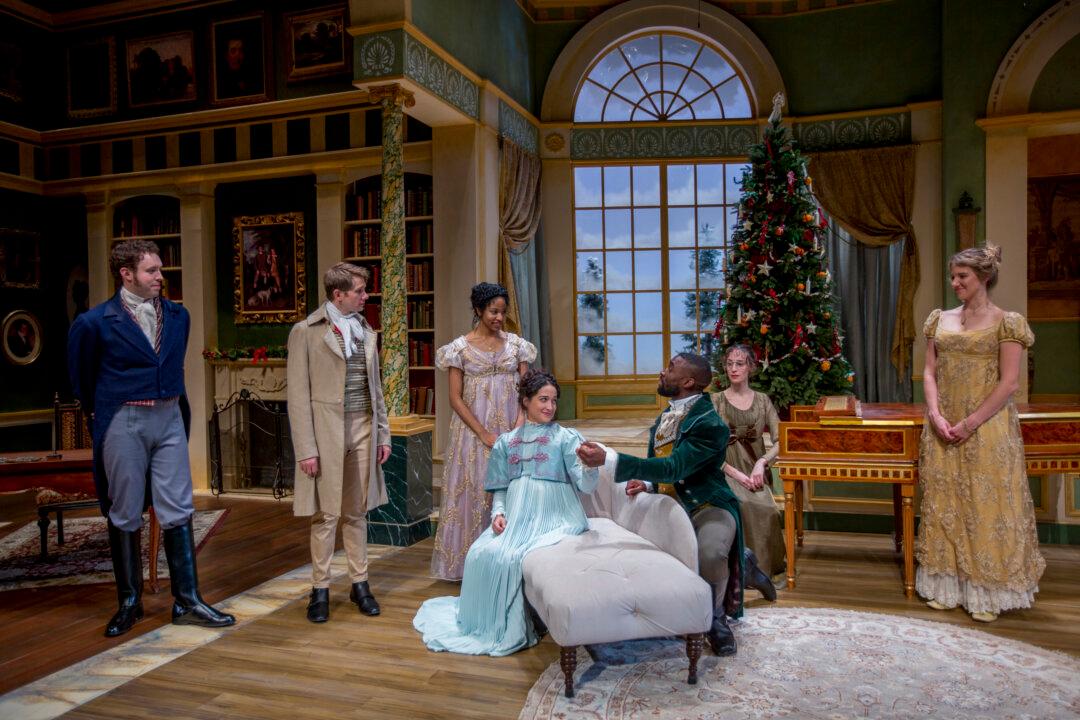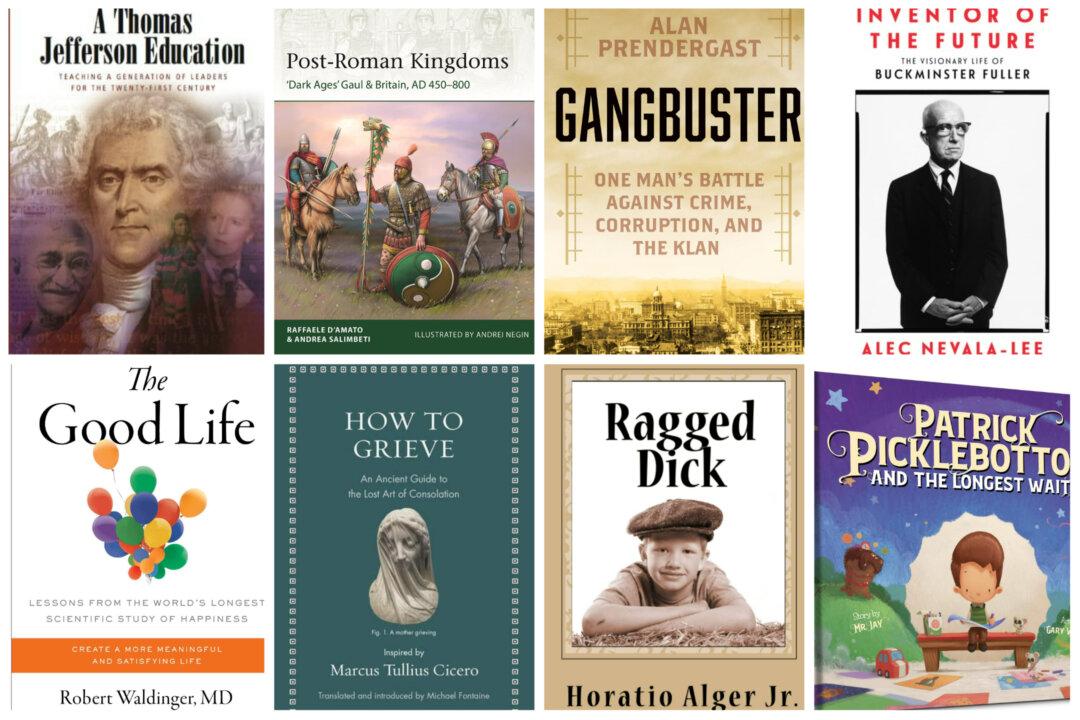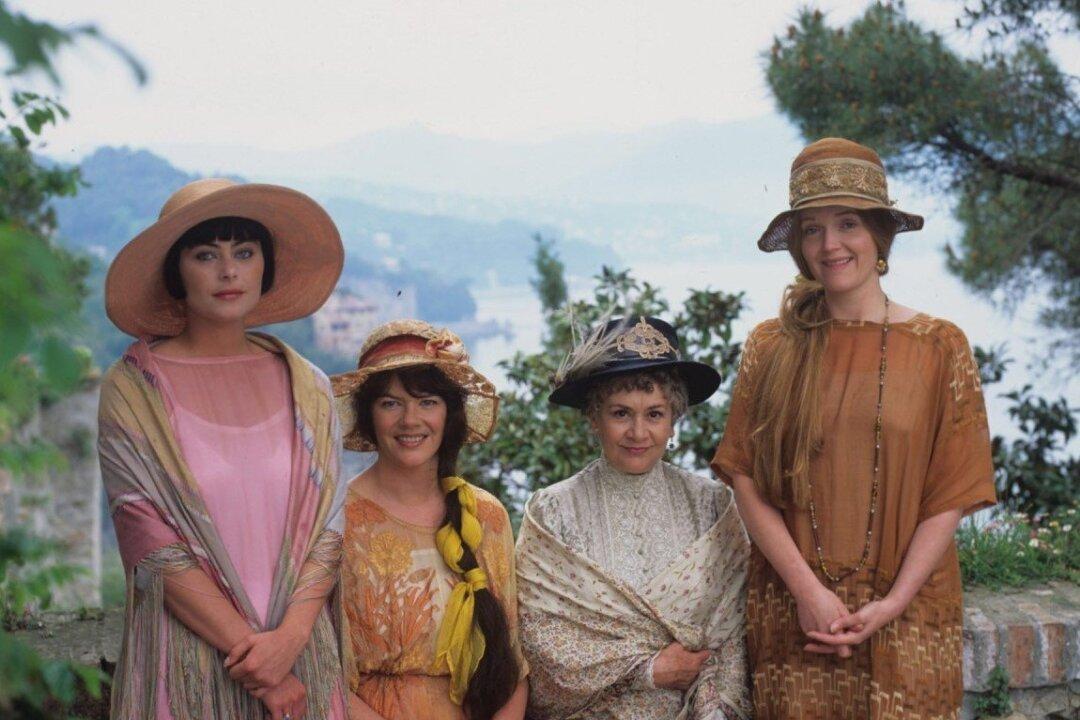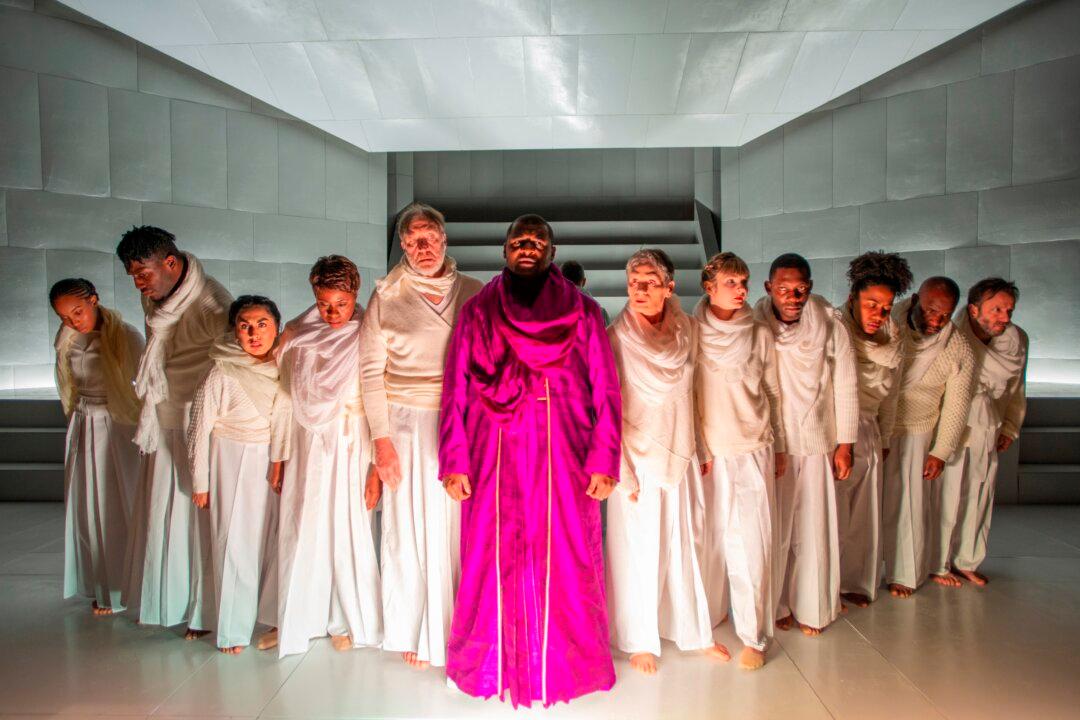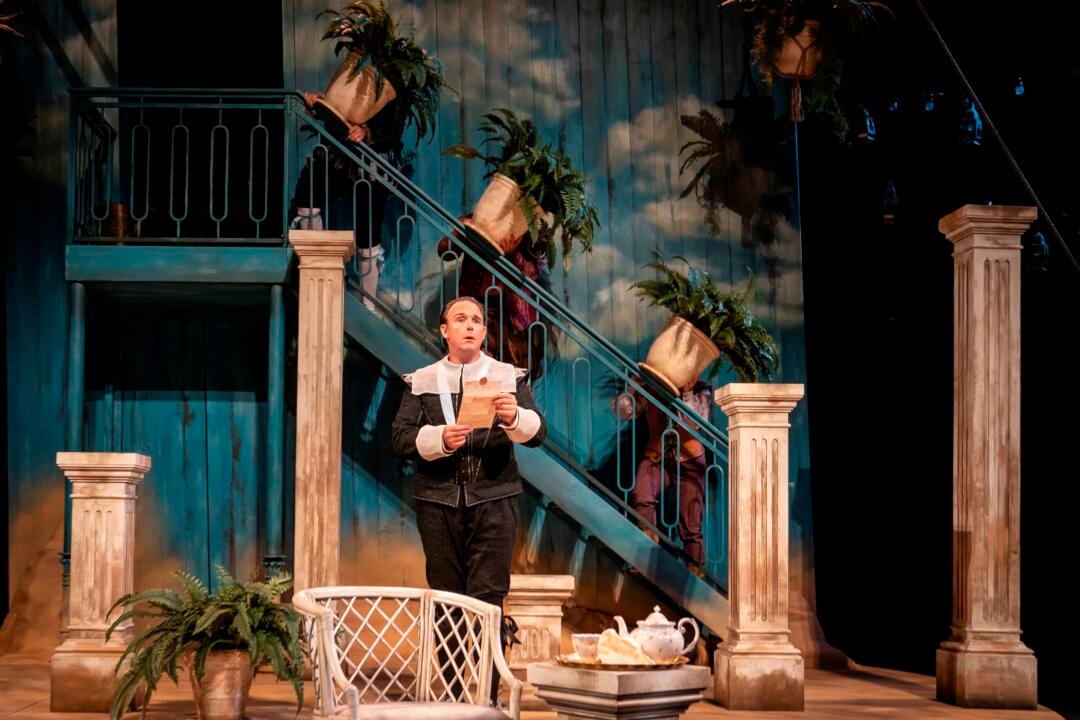SKOKIE, Ill.—It’s hard to imagine the now ubiquitous Christmas tree as ever being new. But the quaint German custom of bringing a tree into the house and dressing it was once as strange and disconcerting to the English as the startling moment when you see yourself, suddenly, through a stranger’s eyes.
The Christmas tree stands center-stage throughout “Miss Bennet: Christmas at Pemberley.” It’s a reminder that there are always fresh beginnings, that joy is a possibility, and that we needn’t be limited by how our families have viewed us, especially after we glimpse ourselves afresh.
Nice touches abound in Northlight's charming production.

